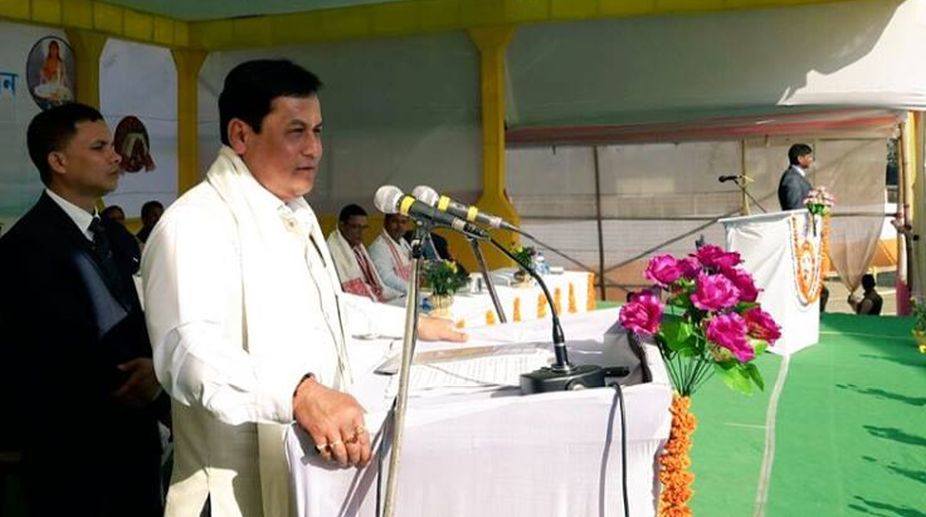Assam CM congratulates Bihu performers for Guinness World Records
Following the receiving of the world record certificates from the Guinness Book authorities, Sarma congratulated all performers for their active participation in the programme.

Assam Chief Minister Sarbananda Sonowal Photo: Facebook
Assam Governor Banwarilal Purohit and Chief Minister Sarbananda Sonowal have greeted the people of the state on the occasion of Bohag or Rongali Bihu and Assamese New Year.
Conveying his warm greetings on the joyous occasion of Rongali Bihu, Governor Purohit in a message said "Let this Bihu, which also marks the advent of Assamese New Year, be a harbinger of a new dawn of warm and harmonious relationship and peace, prosperity and progress in the state."
Advertisement
Chief Minister Sonowal, in a message, extended his Rongali Bihu greetings to the people of the state and wished the festival bring lasting peace and prosperity to the state and strengthen mutual bonding among the people.
Advertisement
The chief minister hoped Rongali Bihu would bring happiness and merriment to the lives of the people and inspire them to commit themselves to the cause of the state with renewed vigour to establish Assam as one of the best states in the country.
Saying the celebrations of Rongali Bihu would bring the people of Brahmaputra and Barak valleys, plains and hills closer, Sonowal expressed optimism that the festival symbolising Assamese cultural identity, would strengthen the age old friendship and camaraderie among people cutting across ethnicity, caste, creed and religion.
Celebrations for the festivities of Bohag or Rongali Bihu heralding the Assamese New Year began on Thursday with Uruka followed by 'Goru Bihu' (Cow Bihu) on Friday, when the cattle in the houses were taken to rivers and water bodies for a ritualistic bath and their ropes changed, wishing them to be healthy and robust for working in the fields in the coming year.
On Saturday, on the first day of Vaisaki month and the Assamese New Year, 'Manuh Bihu' (Peoples' Bihu) will be celebrated with people visiting their relatives and friends and the young paying obeisance to the elders by offering handwoven 'Bihuwaan' (scarf), partaking local dishes like 'pitha' (rice pancakes), narikolor laru (coconut laddus) etc.
Though primarily an agricultural festival celebrated jointly by all communities, religions, ethnicities and languages, performances of Bihu dance is the hallmark of the festivities celebrating spring and the blooming of new flowers and growth of rice plants.
In both rural and urban areas, community stages are set up where cultural functions and dance performances by different communities are held for a week beginning from Friday.
Advertisement